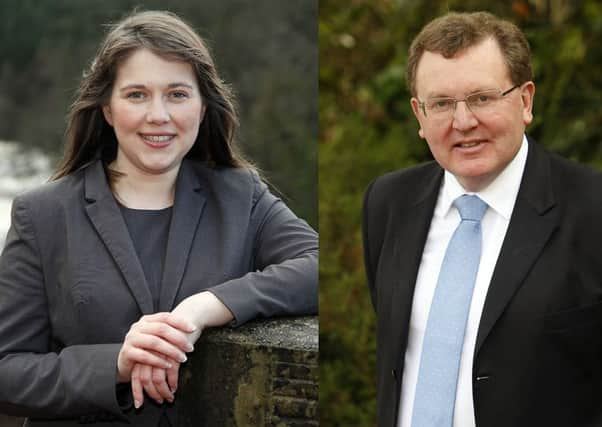Independence defined? Yes or No - You Decide!


Aileen and David kindly agreed to debate the case for Yes and No at the Gazette’s Independence Debate in Lanark Memorial Hall on May 26.
They were only too happy to answers questions posed by our readers that we couldn’t quite get through on the night, thanks to a heated meeting which 420 people attended!
Advertisement
Hide AdAdvertisement
Hide AdSo, just a matter of hours before Carluke and Lanark Gazette readers go to the polls to decide on independence, we’re bringing you their responses.
Each hour on the hour, between 8am and 10pm today, we’ll post one of the answers to a question posed by a Gazette reader.
For each question posed, we will give one opinion from the Yes camp and one from the No camp.
The second question, with answers from Aileen Campbell and David Mundell, questions how independence will be defined.
Advertisement
Hide AdAdvertisement
Hide AdQuestion: If there is a Yes vote in the September referendum, this will give the Scottish government a mandate to negotiate some sort of ‘treaty of disincorporation’ from the UK, which will define what ‘independence’ will substantively mean. If and when this treaty is ratified by both the UK and Scottish parliaments, will it then be subject to a plebiscite whereby the Scottish electorate can either approve or reject the ‘independence’ defined by its articles – and if not, why not?
Aileen Campbell, Yes campaign: The process proposed by the Scottish Government and set out in chapter 10 of the White Paper, ‘Scotland’s Future – your guide to an independent Scotland’ shows that between a Yes vote in September and the proposed independence day of March 24 2016 there will be a period of negotiation. This transition to independence does not include any further referendum, but it is important that the negotiation period and the drafting of a written constitution involve the talent and expertise found beyond politics. ‘Scotland’s Future’ outlines the importance of a participatory approach to any written constitution and proposes the establishment of a Constitutional Convention to do this.
David Mundell, No campaign: Both the Scottish Government and UK Government agreed on holding a single referendum. This vote is on the principle of sovereignty and by voting Yes the Scottish people will be giving a mandate for those negotiations to take place. Both campaigns have had the opportunity to set out their arguments and I believe that the No Campaign has made the risks involved and likely outcomes of these negotiations clear.